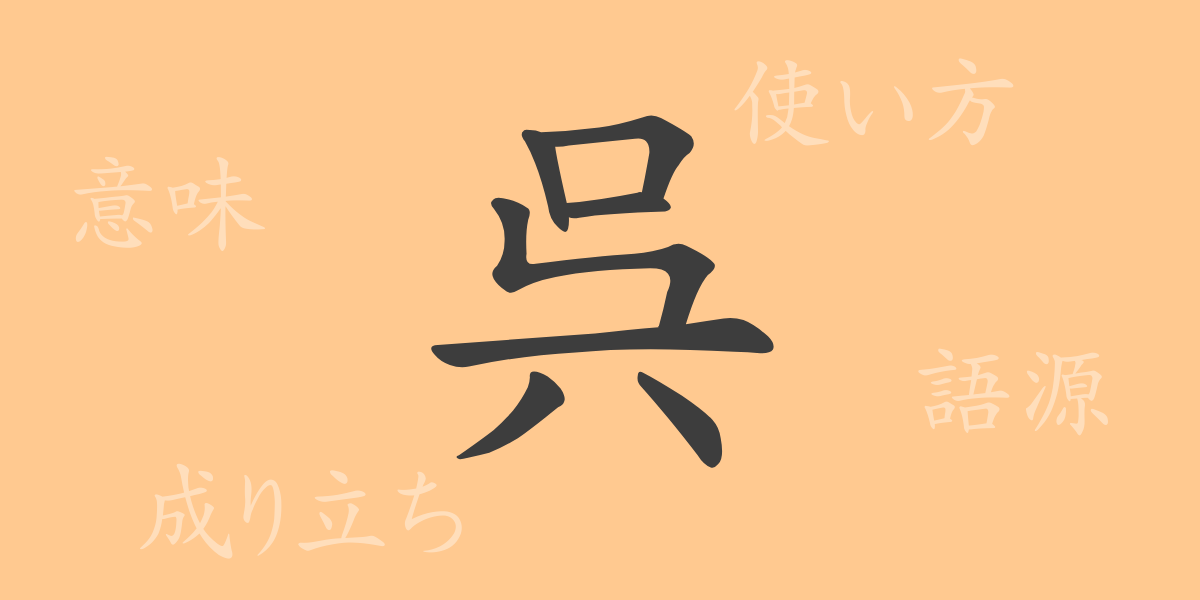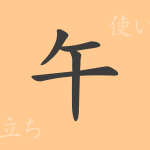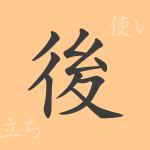The depth and richness of Japanese written culture are evident in its long history. Among the essential elements in daily Japanese life are the commonly used kanji characters. Today, we will delve into one such kanji, “呉” (くれ, ご), exploring its origins, meanings, and usage. Through this article, we aim to uncover the various facets of “呉” and enhance your understanding of the Japanese language.
Origins of 呉 (Etymology)
The kanji “呉” (くれ, ご) originates from an ancient Chinese place name. During the Spring and Autumn period, there was a country called Wu (呉), and its name became established as a character. Over time, it became widely used to refer to this country and later acquired various meanings. Although “呉” may be used for other concepts due to its phonetic similarity, its foundation lies in this ancient history.
Meanings and Usage of 呉
The kanji “呉” (くれ, ご) has several meanings. Originally referring to a place name, it is now often used to mean “to give.” Additionally, it can mean “peaceful” or “tranquil,” reflecting a wish for peace. As a versatile character, it is mainly used as a verb or an adjective, with its nuance changing depending on the context.
Readings, Stroke Count, and Radical of 呉
The kanji “呉” (くれ, ご) attracts attention with its readings and structure.
- Readings: The on’yomi (音読み) is “ゴ” (ご), and the kun’yomi (訓読み) are “くれる” and “くれ”.
- Stroke count: It has a total of 7 strokes.
- Radical: The radical is 口部 (くちへん), which represents “mouth.”
Idioms, Phrases, and Proverbs Using 呉
There are many idioms, phrases, and proverbs in Japanese that include “呉” (くれ, ご). For example, “呉越同舟” (ごえつどうしゅう) means enemies working together, while “呉の福は呉にあり” (くれのふくはくれにあり) signifies that happiness and benefits are unique to each individual. These expressions convey ancient wisdom that continues to resonate today.
Summary of 呉
In this article, we explored the kanji “呉” (くれ, ご) from its origins to its meanings, usage, and related idioms and proverbs. Far beyond a mere character, “呉” embodies culture and history, symbolizing the depth of the Japanese language. With this knowledge, your understanding of Japanese will be enriched. The next time you encounter this kanji, consider the rich background it carries.

























